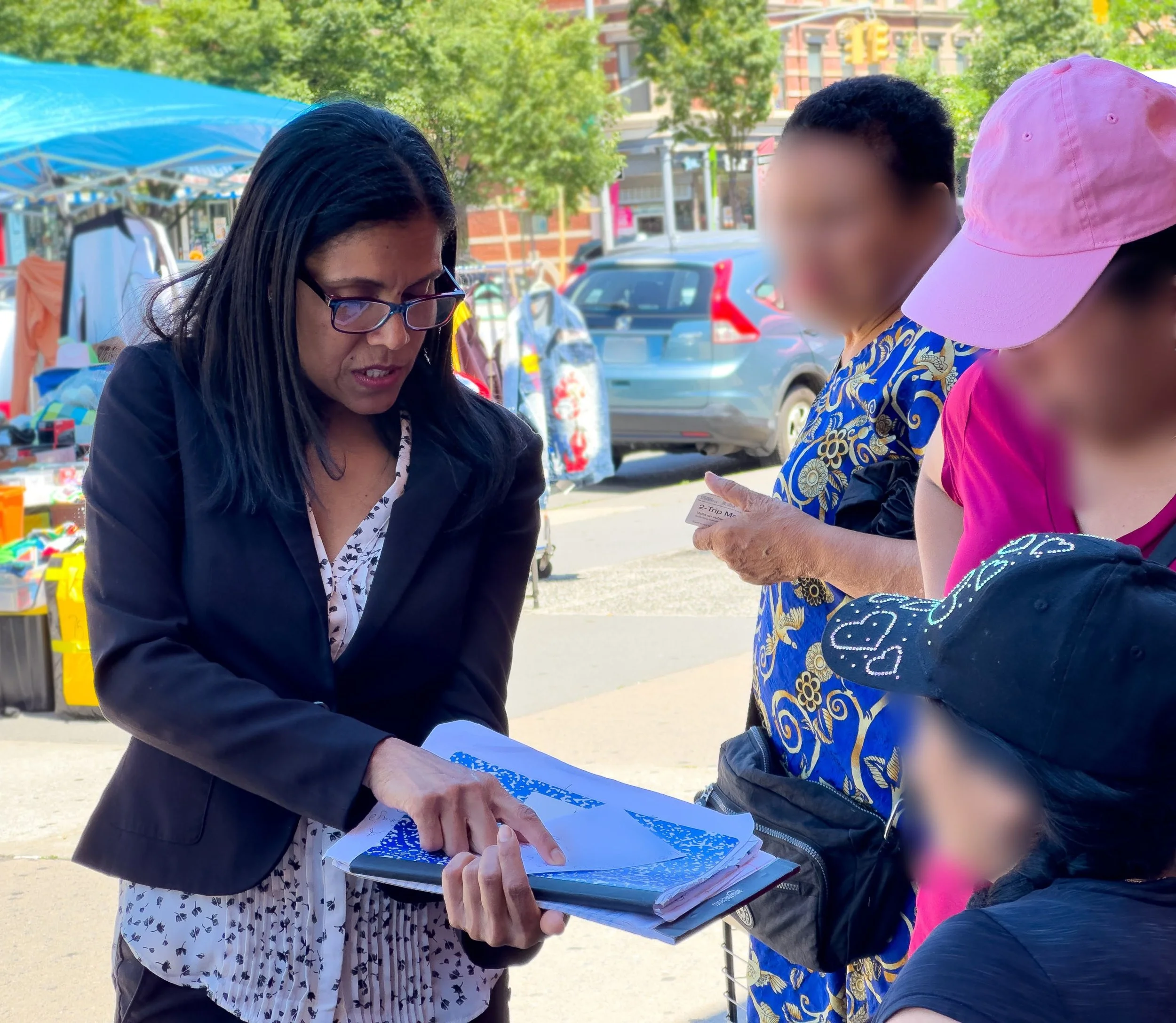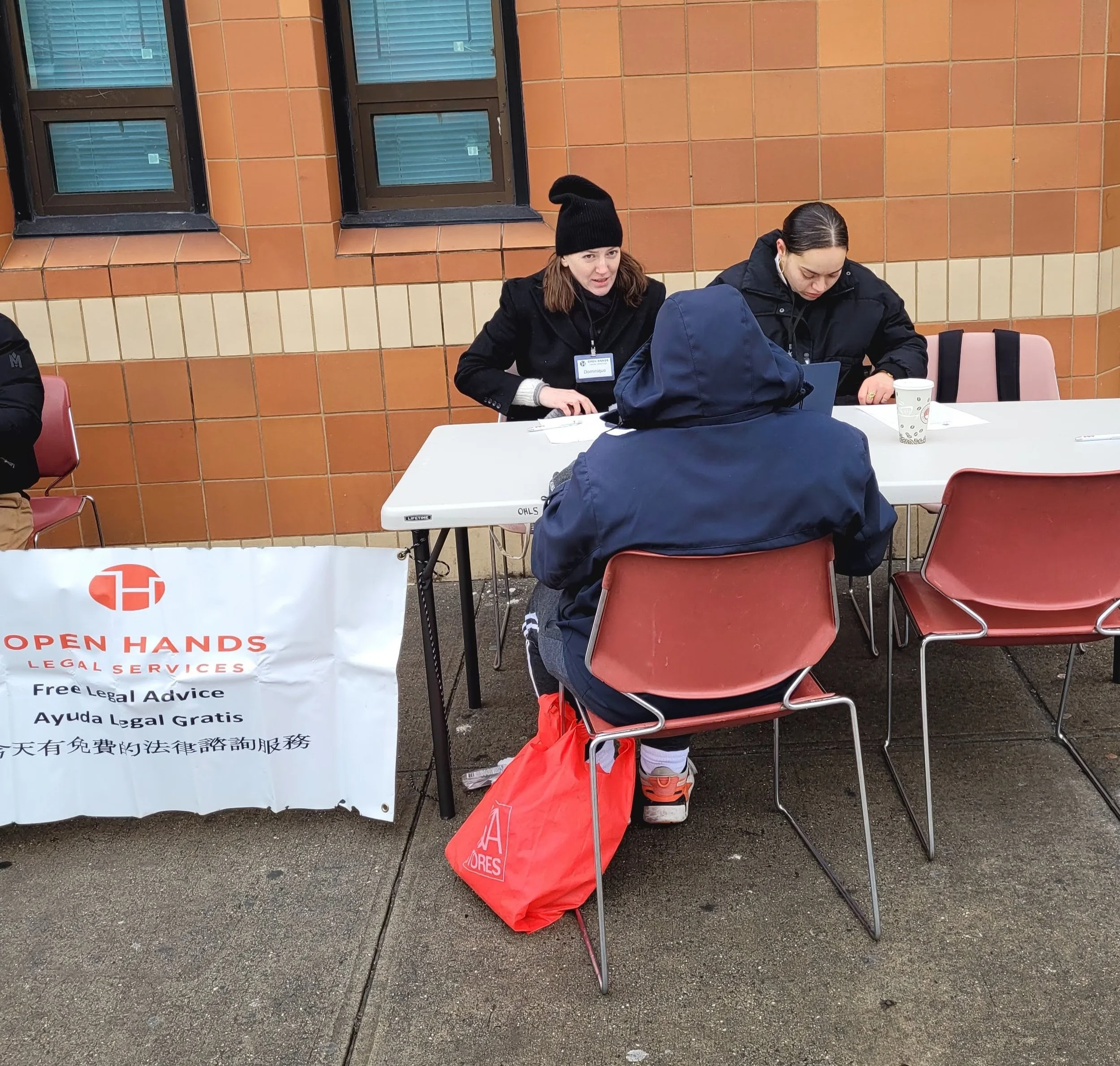THE POOR FACE THE JUSTICE SYSTEM ALONE
Our legal system is built on the premise that you have a lawyer. People accused of a crime are entitled to one, no matter whether they can afford it. But there's no guarantee when it comes to civil disputes—like evictions and child custody cases—even though basic survival can be at stake.
Many challenges faced by low-income and homeless New Yorkers are actually legal in nature and can be helped with advice from an attorney. Unaddressed, the challenges remain barriers to success, even when basic needs are met by other excellent service providers.
Consequences of Criminal Charges
After a criminal sentence is complete, additional legal and social penalties, barriers and disabilities remain. Each year, 25,000 New Yorkers are released from prison to face the 45,000 "collateral consequences" of their conviction. We reduce the legal barriers that a criminal record erects, including cancelling incarceral debt, clearing arrest records and more. Unaddressed, these barriers prevent returning citizens from obtaining housing and employment and can result in recidivism and/or homelessness.
Family
Child support obligations that exceed the capacity of low-income parents harm the entire family. A non-custodial parent whose support is not aligned with their income will experience debt accrual, which hastens enforcement action and heightens fear. Without representation, these parents may disengage from work and from their child. We help non-custodial parents align their child support orders with their income so that payments can be made in full and on time. This results in better outcomes for both parents and children.
Housing and homelessness
Ninety percent of landlords are represented in eviction proceedings, while only ten percent of poor New Yorkers facing eviction have an advocate. We help low-income New Yorkers fighting to obtain, keep, and maintain the safety of their homes. We help tenants who are threatened with eviction, whose landlords withhold repairs and basic services, and who suffer harassment. By preserving housing for low-income tenants, we prevent homelessness, displacement, and disruption of family life and communities.
WORKERS' RIGHTS
Low-wage workers are too often denied the right to work in safe, healthy and fair conditions. These workers can experience wage theft, illegal termination, and intimidation when they seek to enforce their basic rights. We assist workers with wage and hour claims, unemployment benefit hearings and occupational licensing hearings.
Public Benefits
Many low-income and homeless New Yorkers are not aware of the public benefits available to them and do not know how to navigate the complexities of the system. We help clients obtain all the life-sustaining benefits to which they are entitled, including food stamps, Social Security, unemployment insurance and rent assistance. These prevent homelessness and hunger.
CIVIL ACTION
Over 1.8 million people are unrepresented in New York State each year. The lack of affordable legal assistance negatively impacts the stability of individuals, families, communities and institutions. We provide assistance (e.g. referrals and resources) to New Yorkers of all backgrounds in diverse areas of law, from trusts and estates to consumer debt disputes and more.







